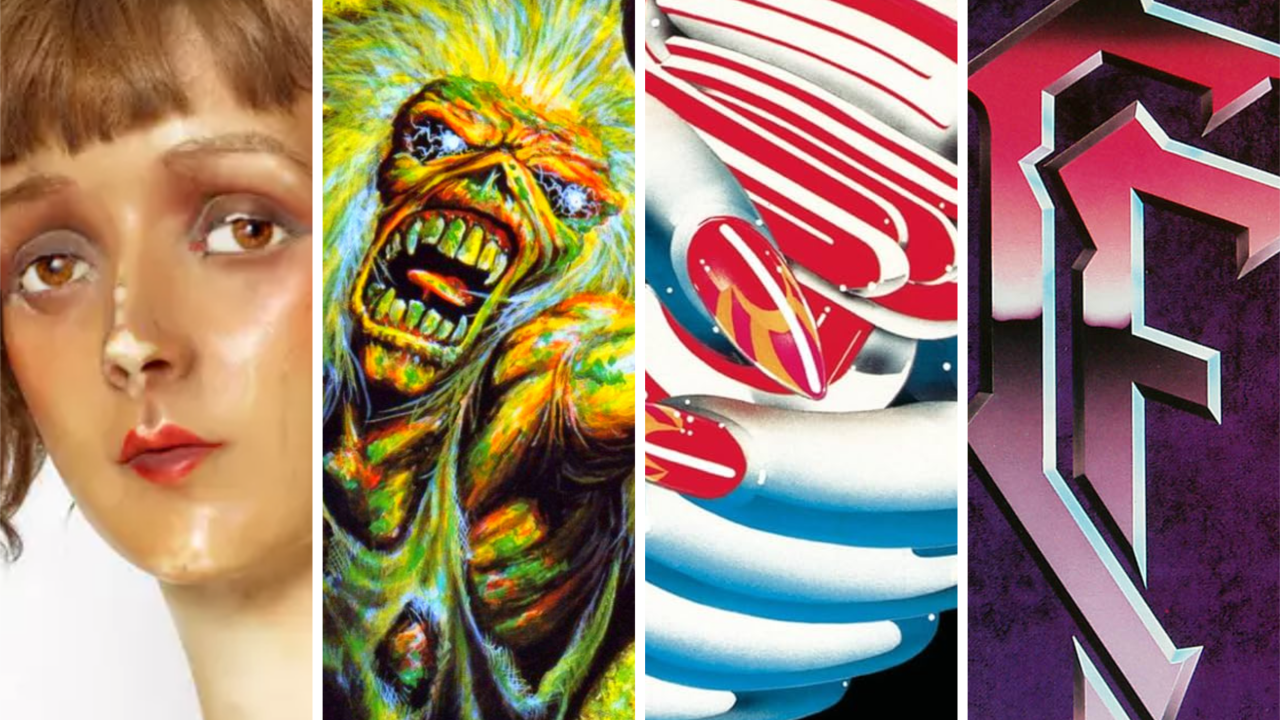Almost every great metal band has that album. And no, I’m not talking about the album that won them critical acclaim or thrust them into this genre’s upper echelon. I mean the album that is so irredeemably bad that it causes legions of fans to reassess what it was about their favourite artist that made them their favourite artist in the first place.
Heavy music is littered with such clangers, many of which have become infamous even outside their creators’ fanbases. But what happens when that reputation is unearned? I asked a collection of Hammer writers and editors to go against the grain, defending the ‘bad’ album by their aggressor of choice, to prove that duds still have value and that music is very much subjective – even in the face of seemingly overwhelming backlash.

Metallica and Lou Reed – Lulu (2011)
Just what is it that attracts one to metal, or any kind of counterculture music? For me, it’s experiencing something truly unknown, arcane, unsettling and uncompromising. Black Sabbath did it, early death metal did it, and Metallica and Lou Reed did it on Lulu. Hearing the biggest metal band of all time refuse conformity, discard genre tropes and dive headfirst into the world of jazz, avant-garde expressionism and art rock was a thrilling proposition. And – although it would be disingenuous to suggest Lulu entirely works – the questions it poses, the unsettling sensations it conjures, the Pandora’s box of oddness it opens is everything that true outsider art should be. Stephen Hill
Iron Maiden – No Prayer For The Dying (1990)
Even the most ardent fan must admit Iron Maiden are prone to bloating. Starting with Powerslave, their songs’ run-times ballooned, alongside their conceptual ambitions. After perfecting that loftier style with Seventh Son Of A Seventh Son, the band basically rebooted, employing a get-to-the-point approach that was harder and punchier than anything they’d done since Killers. No Prayer… is probably the last time Maiden really took a risk – with Bruce at the helm, at least – and if you’re inclined towards a gruffer, darker sound, the likes of Tailgunner, Holy Smoke and Fates Warning are belters. Plus, Bring Your Daughter… was the first metal (and Maiden’s only) UK number-one single. Historic. Rich Hobson
Guns N’ Roses – Chinese Democracy (2008)
Overshadowed by its ludicrous gestation and Axl Rose’s ego, Chinese Democracy was always destined for a kicking – which is a shame, because it’s a damn good (albeit imperfect), kitchen-sink’n’all rock’n’roll opera. It’s stacked with great songs: the snarling, joyously messy title track; stomping, instantaneous banger Better; a trio of world-class power ballads in Street Of Dreams, If The World and There Was A Time; woozy Western waltz Sorry. If this were an Axl Rose solo project in a world where GN’R hadn't so spectacularly imploded, it would have received its flowers. And, judging by the songs we’ve heard so far, I reckon it’s better than anything the reunited lineup will give us. You heard me! Merlin Alderslade
Judas Priest – Turbo (1986)
I had a love/hate relationship with Turbo when it came out. Defenders Of The Faith was the pinnacle of pure 80s metal. However, I also had a penchant for hair metal, and I was quietly infatuated with the poppier excesses of Turbo. I just wished it hadn’t been Judas Priest who made it. Gradually I came to accept that no musical pleasure should be guilty and that bands should experiment as they like. The result is an enduring love for an album that broke the Priest mould, from the synthetic pulse of Turbo Lover to the PMRC-baiting pop-rock of Parental Guidance. Paul Travers
Anthrax – Stomp 442 (1995)
There were some superficial stumbling blocks with Anthrax’s seventh album: the off-the-peg cover, meaningless title and nondescript logo showcased an 80s band in a 90s identity crisis. Some detected influences from Helmet and Pantera, but crunching patterns of staccato rhythm were Anthrax innovations, and Stomp stripped everything down to a concentrated bludgeon, favouring directness and simplicity over the mainstream-baiting sophistication of predecessor Sound Of White Noise. Stomp maintained a consistent standard of unpretentious, blue-collar metal songwriting, with John Bush’s charismatic voice and pithy lyrics in delectable form. Oh, and Dimebag Darrell added delirious solos to two tunes. Chris Chantler
Paradise Lost – Host (1999)
1997-to-2002 are broadly viewed as the years Paradise Lost got, well… lost. After releasing five death/doom and goth metal classics in as many years (and touring in between), the Yorkshiremen grew bored of their own sound, turning to Depeche Mode and electronica for inspiration. Many deem 1999’s Host and 2001’s Believe In Nothing as the nadir of this four-album detour but, while the latter feels legitimately lifeless, Host is a triumph in synth-rock songwriting. From Nothing Is Sacred’s industrial-classical contrast to the graceful vocals throughout Made The Same, it’s as fresh as it is catchy, completely undeserving of its ‘clanger’ reputation. Matt Mills
Celtic Frost – Cold Lake (1988)
Cold Lake is what happens when your brain short-circuits, expecting To Mega Therion and instead getting a sleazy glam metal artefact that sounds like W.A.S.P. pissed on cheap Swiss lager. Celtic Frost, those conjurers of dread, traded corpsepaint for crotch bulges and unleashed a glitter-drenched misfire so flamboyantly turgid, it loops into brilliance. You don’t enjoy it – you succumb to it. The riffs punch hard, the choruses stick and its lo-fi pugnacity gives it a raw, back-alley charm. Beneath the Aqua Net and pleather, there’s swagger, musicianship and a band weirdly ahead of the curve. The bastard child of glam absurdity and basement fury: loud, dumb and stupidly fun. Joe Daly





